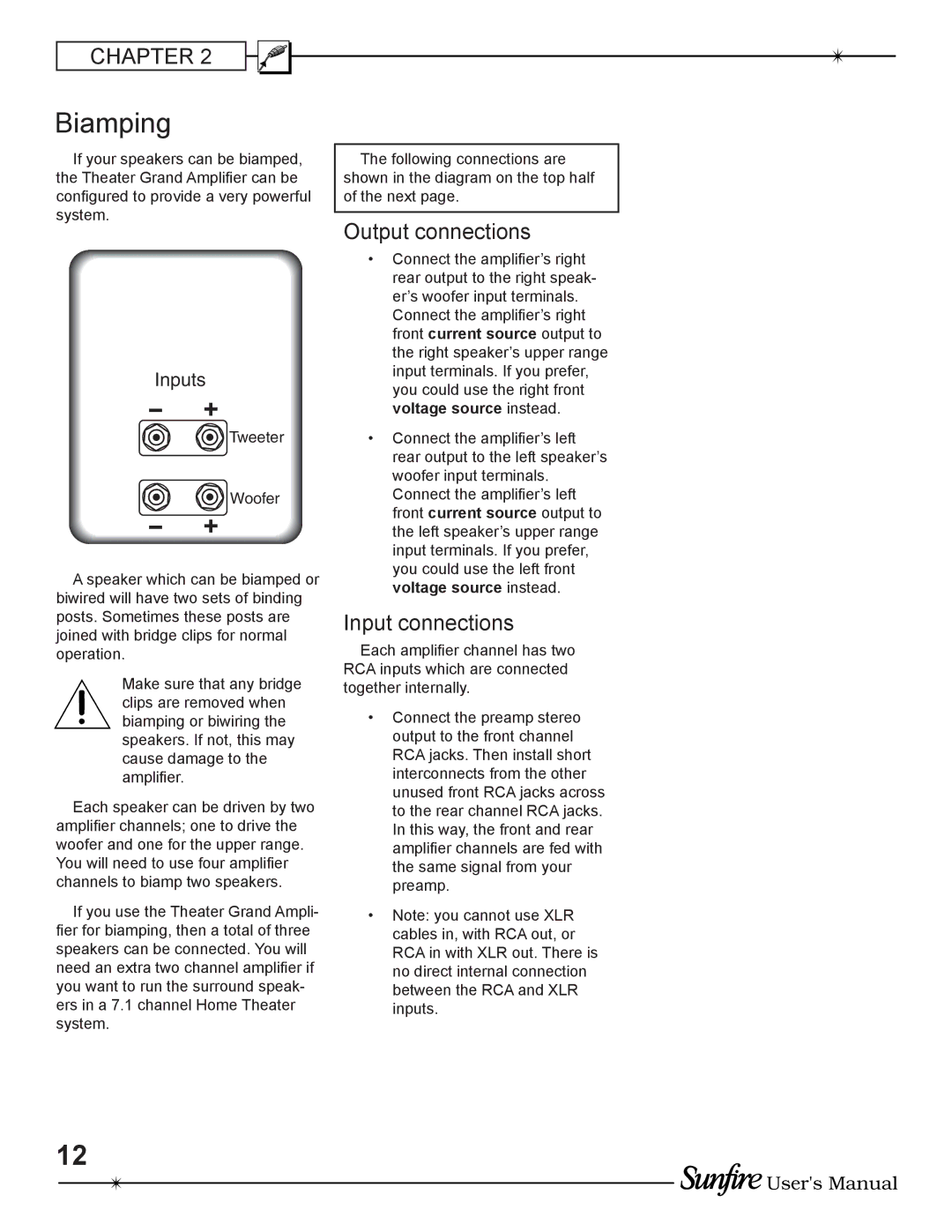
CHAPTER 2
Biamping
If your speakers can be biamped, the Theater Grand Amplifier can be configured to provide a very powerful system.
Inputs
![]() Tweeter
Tweeter
![]() Woofer
Woofer
A speaker which can be biamped or biwired will have two sets of binding posts. Sometimes these posts are joined with bridge clips for normal operation.
Make sure that any bridge clips are removed when biamping or biwiring the speakers. If not, this may cause damage to the amplifier.
Each speaker can be driven by two amplifier channels; one to drive the woofer and one for the upper range. You will need to use four amplifier channels to biamp two speakers.
If you use the Theater Grand Ampli- fier for biamping, then a total of three speakers can be connected. You will need an extra two channel amplifier if you want to run the surround speak- ers in a 7.1 channel Home Theater system.
The following connections are shown in the diagram on the top half of the next page.
Output connections
•Connect the amplifier’s right rear output to the right speak- er’s woofer input terminals. Connect the amplifier’s right front current source output to the right speaker’s upper range input terminals. If you prefer, you could use the right front voltage source instead.
•Connect the amplifier’s left rear output to the left speaker’s woofer input terminals. Connect the amplifier’s left front current source output to the left speaker’s upper range input terminals. If you prefer, you could use the left front voltage source instead.
Input connections
Each amplifier channel has two RCA inputs which are connected together internally.
•Connect the preamp stereo output to the front channel RCA jacks. Then install short interconnects from the other unused front RCA jacks across to the rear channel RCA jacks. In this way, the front and rear amplifier channels are fed with the same signal from your preamp.
•Note: you cannot use XLR cables in, with RCA out, or RCA in with XLR out. There is no direct internal connection between the RCA and XLR inputs.
12
![]() User's Manual
User's Manual
